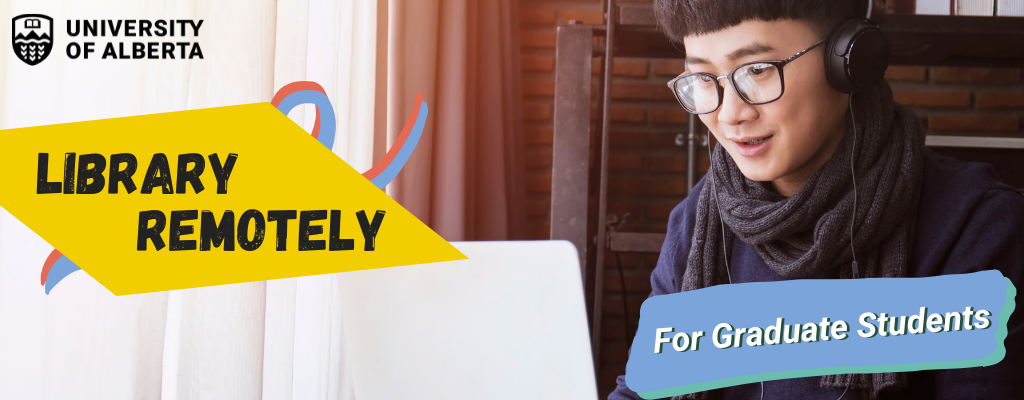
Being a grad student is not easy. Take a deep breath, because the library provides a great many services specifically for graduate students; all of which are still readily available online – and I am happy to share them with you. To better outline these services I will present them in sections based on the different phases of a graduate program.
Coursework & Labwork
Finding detailed research for work you are doing in courses and labs can be found online via the library’s website. The best place to begin is to find a subject guide that focuses on the area of research that is closely related to the topic you are working on. Subject guides are curated lists made by expert librarians in that area. They often offer
- database suggestions, where you can search for academic articles;
- key resources, journals and reference materials;
- suggestions on how to search for certain topics within the library catalogue.
Remember our staff is always happy to help you look for resources through our online chat service.
Working on your Thesis or Dissertation
As you begin to work on your graduate research, take the time to connect with a librarian who is an expert in your field. You can also request a consult with a librarian in any field that may intersect with your research. Our librarians can help you to get started on your literature review; find difficult-to-locate articles and resources; and also suggest tools and strategies to help you succeed.
Literature Reviews
The literature review will be the first step in starting your research and the bulk of it will be done using the library’s resources. Again, connecting with your subject librarian is a good idea, as they can help point you to databases and resources where you can search for literature.
Reference Management
Consider whether you need to use reference management software to help organize all the literature and materials you are gathering for review. Reference management software allows you to gather bibliographic information from databases by selecting references using a folder or collection feature. You can then export the information about each resource into the program. Once you have all the bibliographic information in the program, you can de-duplicate and organize materials into folders or groups and create bibliographies easily. Visit our Reference Management guide for some options.
Access to Materials
Once you have done your literature searching, you can start your reading. Much of the resources the library subscribes to, including journal articles and books, are available electronically. Find past theses and dissertations in our Educational or Research Archive (ERA), or in a number of databases and digitized collections. As a last resort, for materials that the library does not have, you can place an interlibrary loan request.
Other resources that may help with your graduate research are information research methods and tools. Sage Research Methods is a great database that includes books, videos and case studies on different methods of research.
A great way of keeping up with your field is to create alerts that come straight to your email. Many of our databases and journals platforms have “alert” or notification features. Each database platform and publisher is different – so I suggest that you look for links that say “alerts” or “notifications’ within the resource. My colleague Janice Kung wrote a how-to for creating alerts in PubMed. You can also set up alerts for particular topics in Google Scholar.
Publishing
If you are looking to publish some of your work, the library has resources for identifying journals and understanding impact factors. It is also worth learning how to avoid predatory publishers. Speak to your subject librarian – they can help you.
Digital Literacy and Technology
If your studies or research intersect with technology, or you need help with your digital literacy skills, the staff at the Digital Scholarship Centre would be happy to try and assist you.
Having climbed the graduate school hill myself, I know some of the desk research and processes can be challenging. That’s why before I end, I’ll say it again, never be afraid to ask us! We have an army of staff, resources and expertise to help you do the best in your graduate studies this fall.
(Oh, and maybe stock up on coffee, coffee will help too!)
